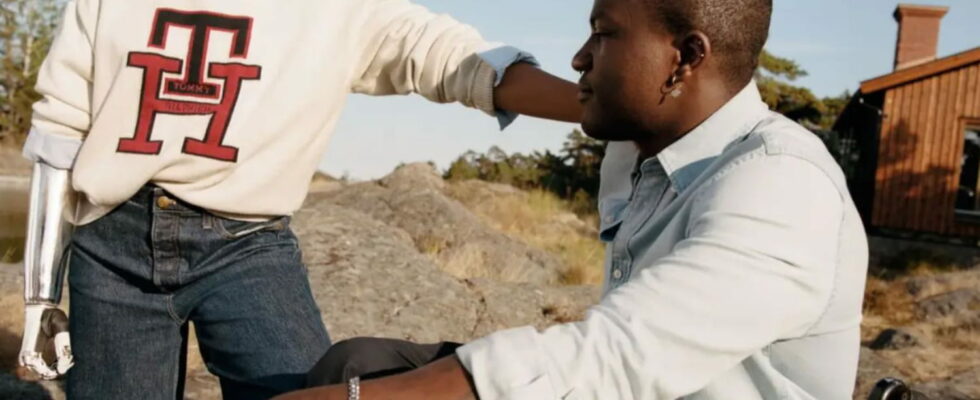Could “Adaptive Fashion,” also known as “Adaptive Wear,” be about to take over the Modosphere? Here’s a look at the brands that are offering their own “easy-to-wear” clothing collections for greater inclusivity.
The Olympic and Paralympic Games saw the birth of a more than magical Paris. As the 2024 edition draws to a close – as a reminder, the closing ceremony is scheduled for this Sunday, September 8 in Saint-Denis – the editorial team wanted to salute the few brands that offer collections of “Adapted fashion” to people in situations of handicap. The opportunity to raise awareness of the difficulties encountered by para-athletes and/or ordinary people, in a daily habit that we don’t think about: getting dressed.
Indeed, many of the clothes offered by traditional brands are not designed for those who are faced with physical disabilities. Collars are too tight to be easily put on, zippers and/or buttons are too difficult to close when you have a deformed arm or an amputated hand, pants are too narrow at the calf for people with a prosthetic leg or who are in a wheelchair… So many problems that some brands known to the general public have recently tried to address by launching their own adapted collections. Their promise: stylish and “easy to put on” pieces. Focus on 3 of them.
Decathlon
It has been a few years now since the French brand dedicated to sport released its adapted fashion collection. Named “Decathlon Adapted Sport”the latter is composed of equipment dedicated to sports practice – such as the wheelchair for tennis and other racket sports – and clothing dedicated to everyday life. A collective of 33 athletes including 8 para-athletes is thus requisitioned to imagine these clothes and to be as close as possible to the needs of people with physical disabilities: we find in particular the Paralympic medalist and cyclist Marie Patouillet, or the sprinter Nantenin Keïta.
A new capsule was also released on September 3rd. Centered around the idea of ”universal tracksuit”, the label’s aim is to make an ultra-stylish fashion proposition for clothes that usually only focus on practicality. For the occasion, The street artist “Crapule 2000” put his creativity at the service of the collection. Streetwear and comfort come together in an inclusive, creative set, with ultra-vitamin colors, with all the features useful to people with disabilities (presence of Velcro on the sleeves, ankles, torso to make it easier to put on, etc.).
Tommy Hilfiger
The “classic American” label, known for embodying the preppy style typical of “Ivy League” students, has also launched on the adaptive fashion market. The pieces in the collection are embellished with magnetic closures or invisible Velcro replacing traditional buttons, openings at the legs to leave enough space for prostheses, or double closures at the front of the jeans to make them easier to put on. This range of inclusive clothing is aimed at all genders and/or ages.

Kiabi
Kiabi also offers to meet these needs with its “So easy” collection.

Some raincoats and parkas have a zip opening at the front and sides, other denim jackets open and close with Velcro, the pants are made of stretch material and have a shape that goes up higher in the back for people in wheelchairs. Like Tommy Hilfiger, this collection is aimed at the whole family, young and old alike.
While these first initiatives are honourable and extremely positive, we still hope that the visibility provided by the Paralympic Games will push more brands to invest, in an ethical manner, in the inclusive fashion market.
